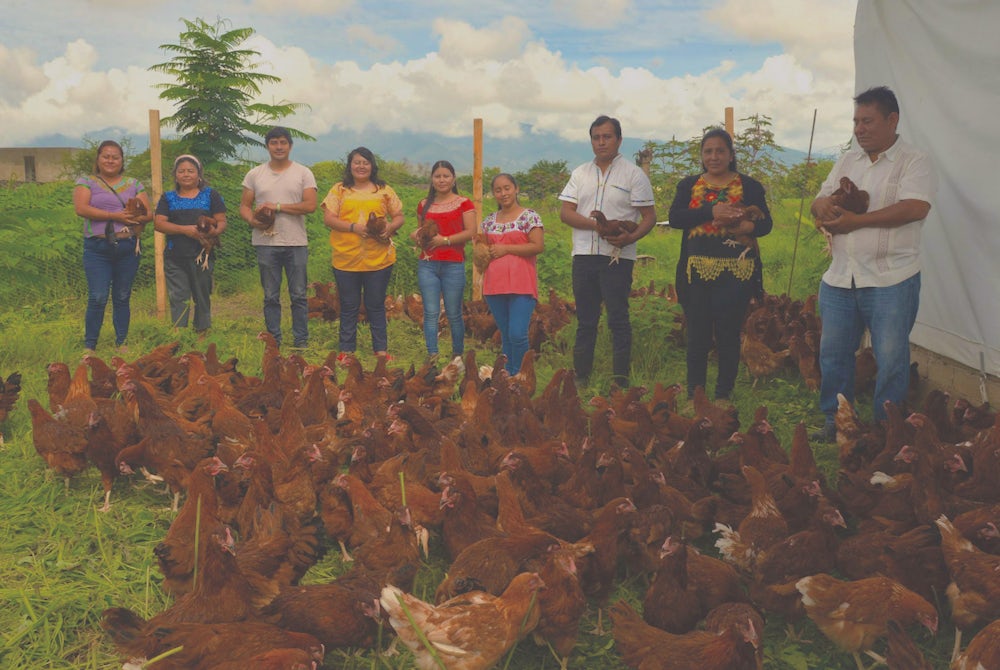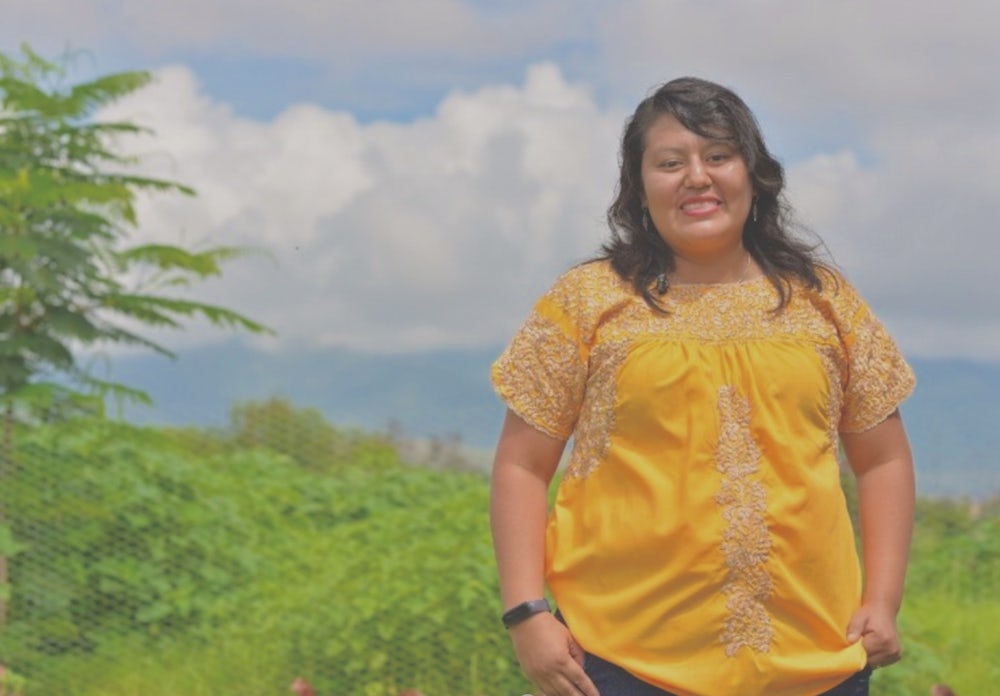Hatching Hope is a groundbreaking global initiative implemented by Cargill and Heifer International that aims to improve the nutrition and livelihoods of 100 million people by 2030. Through the program, farmers can increase their knowledge and resources needed to expand sustainable poultry production and sell their products at market to increase their income.
In Mexico, Hatching Hope strived to improve nutrition and economic livelihoods through enhanced production, promotion and consumption of poultry products. The project helped families and communities prosper by:

In Mexico, rural communities lack access to the capital they need to scale their businesses.
Through the Hatching Hope Mexico project, Heifer Impact Capital (HIC) worked in partnership with El Buen Socio (EBS), a woman-owned, social finance organization, to provide capacity-building financial education and to create an affordable financial product for smallholder poultry producers.
With capital from Cargill and HIC, the loan program was designed as a revolving fund with an affordable interest rate, providing a long-term solution to the access-to-capital challenge.
The project design offered two loans to each qualified farmer to scale from 50 to 100 birds in the first stage, and then to 150 birds in the second stage. The producers could then generate sales to help farmers on a pathway to a living income. The additional revenue also helped producers achieve a stable cash flow allowing opportunity for reinvestment and further scale-up.
Through the project, more than 900 farmers gained access to credit and financial education programs. Of those, 148 farmers received loans to increase their flock size.
To sustain the financial relationship and impact of the project, the loan program continues to operate through El Buen Socio. Based on current operations, Heifer and El Buen Socio estimate that this program should be able to fund an additional 110 farmers through 2026.
One of the most significant barriers that farmers face is accessing finance. They need cash on hand to support the daily operations of their production and commercial business (eg. working capital needs) and scale-up, expansions, consolidation and growth.
Connecting farmers to readily available financial instruments is key to addressing gaps in existing conventional banking and investment institutions. There also needs to be government development strategies in place to enable this.
Extending financial services to populations that financial systems traditionally overlook, represents an opportunity to further ignite and foster microenterprise and small and medium enterprises (SMEs) in production value chains globally.
Reliable and affordable access to finance helps farmers’ activities to be profitable and sustainable. This enables smallholder farmer organizations to invest in the necessary infrastructure, human capital, equipment and smooth the cash outflow and inflows curve, so they can dedicate further resources to produce, purchase, store, process, transport, access better markets and commercialize their products.

Mónica Judith Mendoza is a young entrepreneur who began with a backyard chicken coop for 50 chickens, and today has built a community farm with 15 other entrepreneurs.
Monica, a 29-year-old wife and mother of a 1-year-old daughter, is the legal representative of Bixhana Trabajando, which translates into “Brothers and Sisters at Work,” which is a poultry business based in Villa de Zaachila, Oaxaca, where she is from.
Monica was a Hatching Hope Mexico participant who applied for a loan to increase her flock to 100 chickens. She and her colleagues wanted to start a community chicken coop, but they were putting it off because they didn’t have the resources.
“Entering into a loan is scary, ” Monica said. “Getting into debt, the interest, not having the possibility of repaying it and then the many requirements to meet, not all producers can have access and the bank has no idea what it is like to produce in the field, but the project supported us as a group to make a business plan together with El Buen Socio, which gave me and gave us certainty to ask for the loan. It was all well planned. From our group of producers, 10 of us requested loans.”
In fact, Monica requested a second loan to increase her flock size to 150 hens, because her egg orders increased, and she could not keep up with the demand. She was granted the loan because she is an entrepreneur who made prompt payments.
“The loan is great support, it helped us to speed up the launch of our enterprise under a fair system. When the loan was granted, they gave us three months to invest in the poultry before the birds start laying. You start paying in the fourth month, when you can sell, so the loan pays for itself,” she said.
As the cost of conventional eggs has risen, their orders continue to increase and there is an opportunity for them to take advantage of this and better position themselves in the Oaxacan market. Currently, this group has 1,750 chickens under a community farm approach, producing 10,412 eggs per week, representing sales of $1,648.
Monica said the group’s goal is to gradually expand to 3,500 or 5,000 chickens.
“Being part of this has shown us that we as women can have an active participation in the economy of our families, and at family level it has united us a lot,” Monica said.
